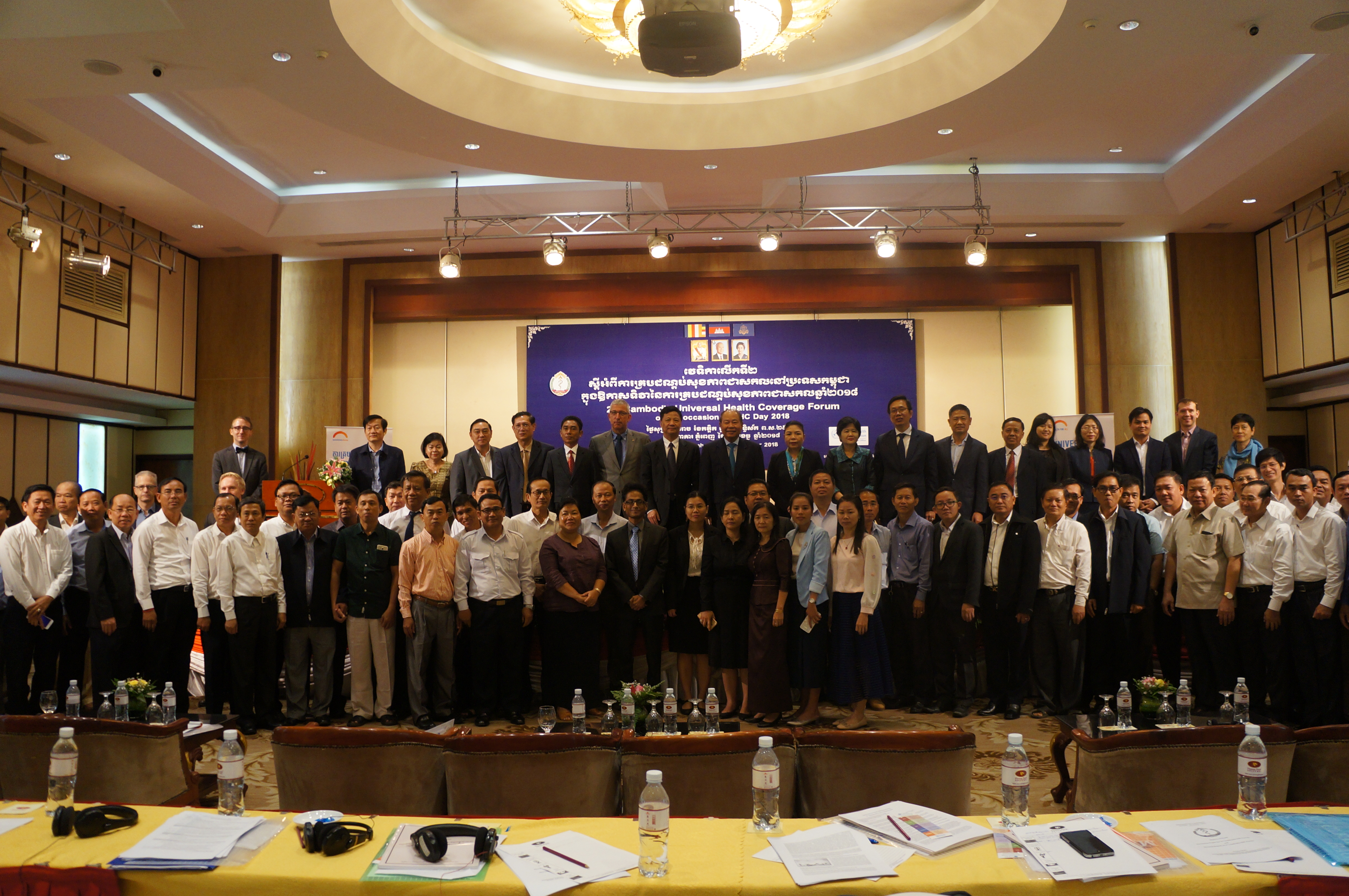On the occasion of International Universal Health Coverage (UHC) Day, celebrated each year on 12th December, the Royal Government of Cambodia convened the 2nd Cambodia UHC Forum to present and discuss new data on health expenditure and financial risk protection in Cambodia, and implications for the way forward to UHC.
Universal health coverage means that all people and communities can use the promotive, preventive, curative, rehabilitative and palliative health services they need, of sufficient quality to be effective, while also ensuring that use of these services does not cause financial hardship.
Over one hundred stakeholders, representing four ministries, several government institutions, representatives of sub-national provincial and operational district offices, and development partners, attended the Forum. His Excellency Professor Dr Mam Bun Heng, Minister of Health, opened the gathering, encouraging the assembled officials to expand financial risk protection coverage to cover more people, focus on service expansion and quality, increase equity in service delivery, especially in primary care, and tackle the rising challenge of noncommunicable diseases (NCDs).
Data from two new reports produced by the Ministry of Health with WHO support - the National Health Accounts 2012-2016, and Financial Health Protection 2009-2016 – were presented by His Excellency Dr Lo Veasnakiry, Director of Planning and Health Information at the Ministry of Health. The National Health Accounts report provides the latest information on health spending in Cambodia by the Royal Government, individuals out of pocket, and by development partners. The Financial Health Protection report provides information on how much people in Cambodia are paying for health services out of pocket, at which providers, for which types of services, with analysis according to wealth quintiles (each 20 per cent of the population) to enable addressing inequities.
Also presented was a study on people in Cambodia who are forced to finance health care by borrowing money, an issue that affects a small but still significant group.
One of the highlights was the sharing of experiences in Viet Nam
and China over recent decades in moving towards universal health
coverage, by WHO experts from the respective country offices. The
trajectories in the two countries are similar in many ways in Cambodia
and the lessons learned were keenly absorbed by the participants.

The final session was a moderated panel discussion with representatives of the Ministry of Health, Ministry of Planning, the National Social Security Fund, and the National Social Protection Council. Each of these agencies of the Government reiterated their desire to collaborate to improve the health of the Cambodian people, whilst highlighting challenges which lay ahead.
The meeting was closed by His Excellency Professor Eng Huot, Secretary of State of the Ministry of Health, who summarized proceedings and expressed his desire to see the Cambodia UHC Forums continue in the future to provide a venue for dialogue and collaboration between the stakeholders and sustain Cambodia’s strong momentum towards achieving UHC.
The World Health Organization (WHO) has been working closely with the Royal Government of Cambodia, particularly the Ministry of Health, and other development partners to achieve Health for All in Cambodia.
